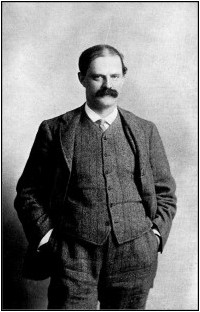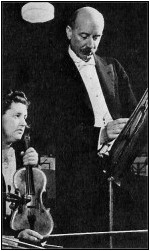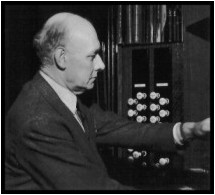| |
 
FESTIVAL'S
FOUNDING FATHERS
 |
|
Nowadays
conductors come and conductors go. In the
last ten years the Musical festival has
seen three, and this year we have two
more - quite a change from the old days,
when three conductors spanned almost
sixty years.
After five exploratory years the
founders, Edith and Rosalind
Craig-Sellar, decided the the festival
should be put on a more professional
footing, and Dr. Hugh Allen, organist of
new College, Oxford, was appointed
Festival Conductor in 1906. Allen exerted
a far-reaching musical influence on
English musical life of his time, and if
his subsequent fame was less on account
of his musicality than his organizing
abilities, his sheer driving force was
just what Petersfield needed.
What is more, he had his own orchestra in
Oxford, led by Mrs Mary venables, which
he brought to Petersfield every year,
augmented by top professional players
from London, booked by Adolf Borsdorf,
one of the co-founders of the London
Symphony Orchestra.
Allen quickly galvanised the festival
into a great burst of activity, and
within a few years he had performed
Mozart’s Requiem in Latin, quite a
feat in those days, the Finale of
Beethoven’s Fidelio, and, spread
over two years, the whole of
Mendelssohn’s Elijah. |
By the end of World war I,
during which the festival fell silent, Allen had
been appointed Director of the Royal College of
Music and Professor of Music at Oxford
University, and felt compelled to resign from his
Petersfield post. He was knighted in 1920, and
his influence continued to be felt for many
years.
For several years before the War, Allen had
brought to Petersfield a young Oxford graduate as
a baritone soloist. His name was Adrian Boult,
and when the Festival was revived in 1920, he,
now an up and coming young conductor, was invited
to become the Festival’s new conductor.
| Despite his
increasing international reputation,
Without Dr. Allen’s orchestra, he
made do with local players, trained by
Percy Whitehead and kethleen Merritt, but
augmented by players from the Royal
College, among them a young violinist,
Marie Wilson. She later became sub-leader
of Boult’s newly-formed BBC Symphony
Orchestra in 1930, and after the Second
World War was a prominent member of the
Philharmonia, who famously said after a
concert with Otto Klemperer, “I feel
like a tart taking money from you after
making music with that man.” She
last appeared in Petersfield as a soloist
in 1955. Boult
greatly enjoyed the relaxed atmosphere of
the Petersfield Festival. He loved to
tell the story, recounted in his
autobiography, of how a guest singer,
seated in the front row of the chorus,
turned round to the lady behind her and
asked if she could see the conductor.
“Oh yes miss, thank you,” came
the reply, “you see, I saw him last
year!” In 1924 the whole Festival
was devoted to the music of Bach, whilst
in 1930 the BBC broadcast part of a
concert from the old Drill Hall, with
Boult asking the soloists to forego their
broadcast fee to shore up the finances of
the festival.
|
|
 |
By 1936 the Town Hall had
been built specially to house the Festival, and
there was a complete performance of the St.
Matthew passion, beginning at 4.30. Among the
audience were Ralph Vaughan Williams and Sir Hugh
Allen.
Boult struggled to keep the Festival alive during
the war years, but resigned in 1945. Yet he
remained interested enough at the age of
ninety-two to send a warm letter of
congratulation on the Festival’s 75th
anniversary in 1981, seventy years after his
first appearance.
He was succeeded by another Oxford man, Dr.
Sidney Watson, Master of Music at Winchester
College and later Precentor at Eton. There will
be some still singing who remember this tall,
military looking man, who, like his predecessor,
found it a privilege and a pleasure to take part
in such an integral part of England’s
cultural heritage.
 |
|
Gradually the
Festival began to change during his
tenure, with major works, taking a whole
evening, slowly becoming the rule rather
than the exception: the Dream of
Gerontius in 1957, the St. John Passion
in 1961, Vaughan Williams’ Sea
Symphony in 1962 and the B minor Mass
twice, in 1953 and 1964. These
performances were good enough to receive
notices in the national press, and Dr.
Watson was particularly proud of a
performance of Vaughan William’ Five
Tudor Portraits, a work notoriously
difficult to bring off. He retired in
1964, after nineteen years as conductor.
In the last forty years the Festival has
seen a dozen different conductors,
including the revered Gordon Mackie and
the charismatic Mark Deller. A sign of
the times, no doubt, they come and they
go. |
Tom Muckley, February 2005
This article was originally
published by the
Petersfield Post
tommuckley.co.uk
|
|




